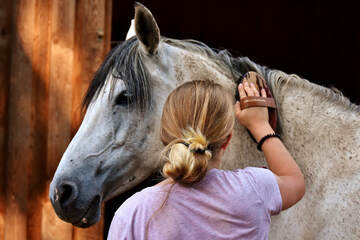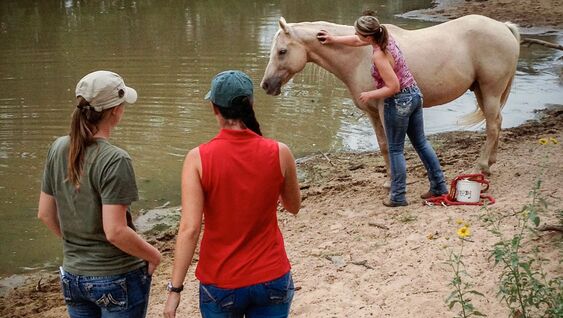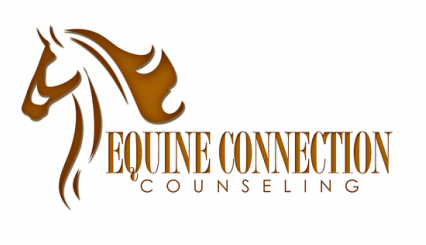
On June 6, 2019, PATH Intl. released a statement regarding use of the term “therapy” in describing and advertising programs for equine assisted activities and therapies (EAAT). In the spirit of greater transparency and more accurate representation of services within the field of EAAT, PATH Intl. stated that only programs providing services recognized as therapy by the medical community and facilitated by licensed healthcare providers may use the term “therapy” when describing their programs and activities. This distinction is crucial in order to understand what types of services are out there and how to decide which type of service will best meet your (or your client's) needs.
So what does this mean for the consumer? Well, here are a few questions to ask to figure what the best service is for you and how to find someone who can provide it.
Questions to Ask Yourself:
- What am I looking to get from this service?
- Are my goals recreational or clinical? That is, do I want to learn about horses and riding or do I want to experience clinically significant mental or physical health changes?
- Do I want a service that may be covered by insurance?
Questions to Ask a Potential Provider:
- What specific services do you offer?
- What are your staff’s qualifications?
- Are any staff members licensed health care professionals? If yes, what license(s) do they hold?
- What happens in a session/lesson?
- How will this benefit me?
Here's a quick snapshot of the different types of activities versus therapies and what you can expect from each:
ActivitiesTherapeutic Horseback Riding Service: a safe basic equestrian lesson for people with disabilities and special needs Facilitator(s): riding instructors* who are trained to make adaptations and accommodations for individuals with special needs Goal: to learn horsemanship and riding skills while promoting cognitive, social, emotional, and physical well being How to Find a Program: visit PATH Intl.'s Find a Center and select therapeutic riding to locate a program near you. In a nutshell: if you have special needs and would like to learn horsemanship and/or to ride in a safe environment, this is the service for you. Equine Assisted Learning Service: an experiential learning approach through equine assisted activities Facilitator(s): qualified educators co-facilitating with equine specialists and/or therapeutic riding instructors Goal: to facilitate development of life skills to meet personal, professional, or educational goals How to Find a Program: visit PATH Intl.'s Find a Center and select equine assisted learning to locate a program near you. In a slightly bigger nutshell: It can get a little confusing trying to understand how equine assisted learning differs from equine assisted counseling and psychotherapy. The most important distinction is the absence of clinical processing in equine assisted learning. What does that mean? Simply put, it means that the educator should refrain from processing any clinical issues such as trauma, past childhood experiences, or specific mental health concerns such as PTSD, anxiety, depression, and many others. The focus of this activity should be on teaching the student learning strategies such as communication and problem-solving through activities with equines. Any clinical issues that arise should be referred to a licensed mental health professional. If you have any past trauma or significant mental health concerns, we strongly recommend participation in services facilitated by licensed mental health professionals as those issues are likely to arise even in a learning context. | TherapiesHippotherapy Service: speech, occupational, or physical therapy treatment using equine movement Facilitator(s): licensed physical therapists**, occupational therapists**, or speech/language pathologists** co-facilitating with therapeutic riding instructors* Goal: to address impairments, functional limitations and disabilities in patients with neuromotor and sensory dysfunction to achieve functional goals How to Find a Program: The American Hippotherapy Association maintains a database of hippotherapy providers. In a nutshell: if you are looking for an alternative approach to physical, occupational, or speech therapy, this is the service for you. Equine Assisted/Facilitated Counseling and Psychotherapy Service: professional counseling or psychotherapy through partnership with equines Facilitator(s): licensed mental health professionals** co-facilitating with equine specialists Goal: to address specific treatment goals and/or diagnoses through interaction with equines to effect clinically significant improvement in psychological and/or behavioral functioning How to Find a Program: it can be challenging to find these types of programs as there is no centralized database. Some programs can be found using PATH Intl.'s Find a Center tool and selecting equine facilitated psychotherapy. However, you may also find programs using a basic internet search. In North Texas, Equine Connection Counseling specializes in providing this service. In a nutshell: if you are looking for an alternative approach to office-based counseling/psychotherapy for treatment of specific mental health treatment goals and/or diagnoses, this is the service for you. |

**It is important to verify that the individual who is advertising himself or herself as a therapist has been licensed by their state to practice therapy. Every state should have a database (or other method) to verify a therapist's license. In Texas, you can verify an individual's license by conducting an online license search. You can also request to see any licensed provider's state-issued license for their profession. For equine assisted counseling/psychotherapy, it is also important to note that just because someone is a licensed healthcare provider does not mean that they are qualified to practice counseling or psychotherapy. The therapist must have received clinical training and be governed by a board that oversees their practice of psychotherapy. Basically, if the therapist would not be considered qualified (or licensed) to practice psychotherapy in an office-setting, they are not qualified to practice with equines either.
If you want to know more or have questions about a specific service, please don't hesitate to reach out to us. We would be happy to help you find a service that is the right fit for your needs whether that is Equine Connection Counseling or another of our community partners.


 RSS Feed
RSS Feed
